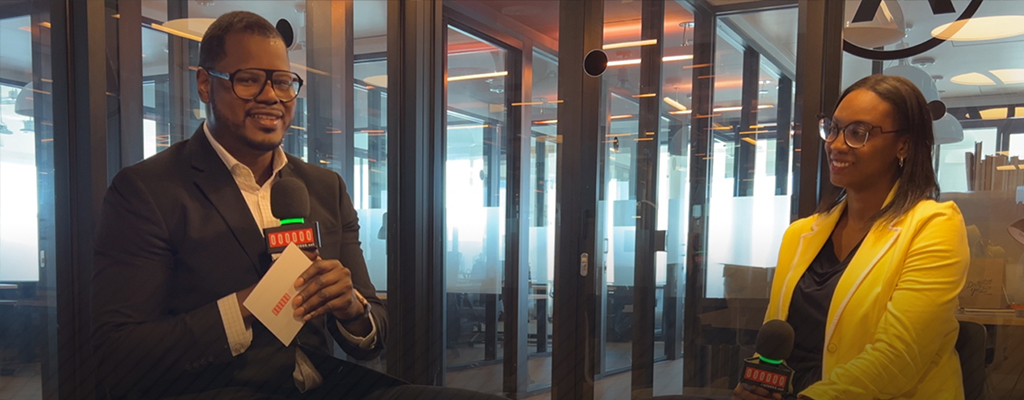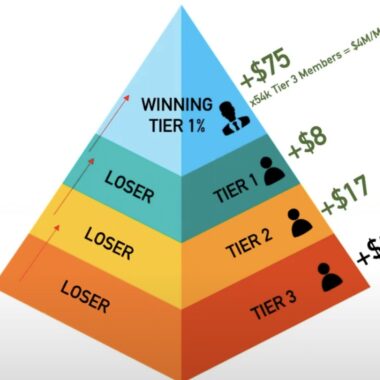Transcript
0:00
Kamilah Moore is a well-respected
0:01
activist who is serving as chairperson
0:04
for the california reparations task
0:06
force
0:07
she earned a degree in law at columbia
0:09
university where she specialized in the
0:11
study of reparations she is committed to
0:14
a reparations package that is in line
0:16
with international standards and repairs
0:18
the sentence of the american enslaved we
0:21
will interview her now on six zeros
0:25
[Music]
0:28
hey folks i’m jay with six zeros and i’m
0:31
here with the chairperson of the
0:32
california reparations task force camila
0:35
moore how are you this morning i’m doing
0:37
great jay thanks for having me how are
0:38
you i’m wonderful thank you for joining
0:41
so for those that are unaware can you
0:43
explain what the california reparations
0:45
task force is and how the members were
0:48
selected
0:49
yeah absolutely so the california
0:51
reparations tasks for scopes and powers
0:54
are predicated on a legislative statute
0:56
called ab3121
0:59
the formal title entitled california
1:01
reparations task force to study and
1:03
develop reparation proposals for african
1:06
americans with special consideration for
1:08
african-americans who are descendants of
1:10
persons enslaved in the united states
1:12
and essentially there’s a nine member
1:14
task force
1:16
we are mandated to meet over a period of
1:19
two years to study reparations proposals
1:22
and develop them
1:23
and five members of the task workforce
1:26
were selected by the governor gavin
1:28
newsom uh two were selected by the
1:31
speaker of the california
1:33
assembly and then the two other task
1:36
force members were selected by the
1:38
speaker of the california senate nice so
1:41
how were you selected to be in such a
1:44
prestigious role as the chairperson of
1:46
this task force
1:48
yes so i was appointed to the task force
1:51
by anthony rendon who’s the speaker of
1:53
the california assembly and at the task
1:56
force first meeting in june of 2021 we
2:00
actually um
2:02
voted for who would be the chair and the
2:04
vice chair of the task force amongst the
2:05
nine members
2:06
and um you know i made a speech to be
2:09
considered for chair
2:10
um and i was elected by my fellow task
2:13
force members to lead the way that’s
2:15
awesome now does the
2:17
weight of that really weigh on you
2:19
because think about if we take this all
2:21
the way to the end zone your name is
2:23
going to be etched in history has that
2:26
really sat on you yet
2:28
no it has not um we have a report that’s
2:31
going to be released soon in june and i
2:33
had to draft a forward for that report
2:36
and i think in drafting that forward it
2:38
kind of started to hit me that okay this
2:41
is real
2:42
it’s very real that’s awesome so
2:46
the last the sessions in march they were
2:48
very passionate very passionate sessions
2:51
and the reason why they were so
2:52
passionate is because the conversation
2:55
of eligibility came into play and the it
2:58
was very polarizing because one side
3:00
wanted the the party that is eligible
3:03
for reparations to be
3:05
race-based and then another side wanting
3:08
it to be lineage based now can you
3:10
explain for the audience the difference
3:12
between those two and the ramifications
3:15
of choosing race-based versus lineage
3:18
yes so the difference between
3:21
race versus lineage based so
3:24
a race-based standard for reparations
3:26
for the institution of slavery and their
3:28
legacies would
3:29
detail or entail all black people
3:32
regardless of national or immigrant
3:34
origin being eligible for reparations in
3:36
the state
3:38
a lineage-based requirement which would
3:41
entail
3:42
the only people who would be eligible
3:43
would be black americans who descend
3:46
from child slavery so
3:48
if you’re able to trace your lineage to
3:50
an enslaved or free person living in the
3:52
united states friday nights
3:55
prior to the 19th century then you would
3:57
be eligible for reparations and so from
4:01
a 5-4 decision the majority of the task
4:04
force members voted for lineage-based
4:06
approach
4:07
and so
4:08
i think some of the ramifications of a
4:10
race-based approach for me which is why
4:12
i didn’t support that one is the
4:15
constitutional law ramifications we had
4:18
a uc berkeley dean
4:20
uc berkeley law dean eric morinski come
4:23
to provide expert testimony to the task
4:25
force and essentially he stated that no
4:27
racial classifications are inherently
4:29
suspect to the u.s supreme court and
4:32
automatically trigger strict scrutiny
4:34
which is the highest form of scrutiny
4:36
under judicial review standards
4:38
and so he advocated for a lineage-based
4:41
standard because you know lineage-based
4:43
standard is not a race standard and thus
4:45
would not trigger strict scrutiny but
4:47
would trigger rational basis review
4:49
which is actually the lowest standard of
4:51
judicial review and it has the easiest
4:54
um
4:55
path forward um and potentially won’t
4:58
probably get struck down
5:00
um but i think the negative the other
5:02
negative implications around race for me
5:04
is the question of well how do you
5:06
improve your blackness a lot of people
5:07
are asking the questions of how do you
5:09
trace your lineage
5:11
but
5:12
how do you prove your blackness how you
5:14
know knowing that blackness is a
5:15
self-selecting category right anyone can
5:18
can check black on the forms you have
5:20
people like rachel dolezal and actress
5:23
mindy kaling’s brother who’s of the
5:25
indian descent who actually wrote a book
5:26
about
5:27
how he pretended to be black to get into
5:29
medical school and so now that was also
5:32
just a more another reason why i was
5:34
against the race-based approach because
5:37
of a potential proliferation
5:39
of black fishing um
5:41
but yeah and then on to add to that is
5:45
you have individuals that run from
5:47
blackness
5:48
and then when it’s time to get repaired
5:51
then they’ll run into the blackness fold
5:53
but then they’ll still take those
5:55
anti-black sentiments out into the world
5:57
but then have additional resources so it
6:00
would kind of in a lot of ways it would
6:02
be like typical rising tides lift all
6:05
boats you know
6:07
yeah so that would that
6:09
and the thing is a lot of the proponents
6:12
one of the things i wanted to ask is
6:14
what were where did your convictions
6:16
come from because you were so staunch in
6:19
in the lineage base so not only is it is
6:21
it wrong from a legal perspective but
6:24
from a social perspective how do you
6:26
feel about it because
6:28
there was a lot of like guilt trip and
6:30
shaming tactics used against the
6:33
individuals that were for a
6:34
lineage-based approach so why were you
6:37
so why
6:38
why is your conviction so strongly
6:40
outside of the legal ramifications and
6:42
so outside of the legal ramifications
6:45
one reason i was so passionate about it
6:48
was that secretary webber who was the
6:49
lead author of the bill she came to
6:51
provide extra testimony to the task
6:53
force as well in january of 2022 and
6:56
essentially she says that her intent
6:59
was for the bill to be lineage-based so
7:01
along with her testimony
7:04
the legal testimony
7:07
but to your point more directly if you
7:09
look at the statute
7:10
it’s very clear in terms of who the
7:12
state of california is authorized to
7:14
apologize to doesn’t say the state of
7:16
california’s authorized apologize to all
7:18
black people it verbatim says to free
7:21
african slaves and their descendants
7:23
where they’re talking about the task
7:25
force um
7:26
requirement to develop reparation
7:28
proposals even for contemporary or
7:30
present day harms
7:32
it’s still tailored and uniquely
7:34
tailored to you know those freed african
7:36
slaves and descendants and their
7:37
descendants it doesn’t say all black
7:39
people and so you know i i as a you know
7:43
a descendant of child saver myself you
7:45
know
7:45
i have my own conviction my own you know
7:48
personal convictions but
7:50
i mean just more objectively i think the
7:53
stock the statute itself
7:55
um the legal advice and
7:58
the legislative intent from secretary
8:00
weber was definitive for me that makes
8:02
sense that makes sense so staying true
8:04
to the spirit of ab3121
8:07
all together so that’s perfect so and
8:10
april 13th i believe that’s your next
8:12
session correct yes so the task force
8:15
meets again but for the first time in
8:17
person
8:19
april 13th and april 14th at third
8:21
baptist church which is vice chair
8:24
brown’s uh church where he’s a pastor
8:26
nice and so you’re going to be talking
8:28
about
8:29
how the educational system has been
8:31
weaponized against us like for instance
8:34
the school-to-prison pipeline right
8:36
that’s a way to funnel us into a system
8:38
where then they can use us as
8:40
slave labor again so so what what is the
8:43
takeaways from this session how how is
8:46
the findings from this session going to
8:48
be used to embolden our reparations
8:51
claim
8:52
absolutely so at the april 13th and
8:55
april 14th hearings as you noted we’ll
8:57
be having a series of panels on
8:59
education from you know pre-k to 12th
9:02
grade um a specific panel as you noted
9:05
on the scooter visit pipeline and even a
9:08
panel on you know college education
9:10
professional education
9:12
where we hope to hear from you know
9:14
college students but also black college
9:16
administrators
9:17
about what the state can do
9:19
to provide reparations in the
9:21
educational context for black american
9:23
citizen from child slavery understanding
9:26
the history of
9:27
you know us in this country with
9:29
education you know when we were enslaved
9:32
we were forbidden to read and write and
9:35
you know how do we make repairs for
9:38
the educational gaps and funding and
9:41
um the
9:42
not seeing ourselves in the curriculum
9:45
and so you know so many questions and so
9:47
many issues will probably be
9:49
discussed at the april 13th and 14th
9:52
hearing we hope that whatever is
9:54
discussed the nine member task force is
9:56
able to
9:58
find some solid reparation proposals to
10:01
implement into our report
10:03
awesome
10:04
and so
10:05
to pivot away from that point
10:08
when we saw
10:10
you and and uh
10:12
javon lewis and scott lewis
10:15
we really felt like we had advocates for
10:17
us in the room can you talk about the
10:20
importance of us being in those rooms so
10:22
that we can make sure that our agenda
10:25
and our opinion is being uh asserted
10:28
into the conversation yeah absolutely so
10:31
i’m a repertory justice scholar i study
10:33
international criminal law and wrote a
10:35
thesis on repertory justice for the
10:38
transatlantic slave trade the
10:39
institution of slavery and its legacies
10:42
and under international human rights law
10:44
there is a common understanding
10:46
that repertory justice processes are
10:48
supposed to be victim-led
10:50
right so in this domestic human rights
10:53
context that is reparation for the
10:55
institution of slavery in the united
10:57
states
10:58
as a repertory justice scholar i think
11:00
it’s important to center the voices of
11:03
the victims and the victims in the
11:05
situation are the descendants of shadow
11:08
slavery and sharecropping and
11:11
jim crow and the new jim crow and so
11:13
that’s why i will always advocate for
11:16
you know extended public comment
11:18
chats to be open
11:20
um
11:21
there are some issues with that
11:23
that folks have been following but i’m
11:25
always going to be a staunch advocate in
11:27
terms of making sure that you know the
11:30
victims um in this process are leading
11:33
the way so what would your advice to
11:36
young
11:37
black american descendants of the
11:40
enslaved
11:41
what would be your advice to the young
11:42
boys and girls that are thinking about
11:44
getting into civics but they’re not sure
11:46
uh you know the economic prospects of it
11:49
or they’re not sure
11:51
the viability of it what’s your advice
11:53
to them
11:54
well my advice would be to stay in
11:56
school
11:57
stay engaged right google is you know a
12:00
free option where you can always look
12:03
into current events
12:05
um into
12:06
current events that may interest you
12:08
but again stay engaged in this process
12:10
because this is something that i was
12:12
actually thinking about earlier this
12:14
morning
12:15
you know what could a reparation
12:16
proposal be
12:17
uh for you know black americans disabled
12:20
child slavery to amplify and boost our
12:22
political participation like can the
12:24
state fund you know model government
12:27
program for black youth so they’re able
12:29
to understand very early on about the
12:32
political process on the local state and
12:34
national level and obviously for black
12:36
american adults you know could a
12:38
potential reparation proposal be you
12:39
know state funding to amplify and
12:42
support potential governmental
12:44
candidates as well who are black and
12:46
very descended of child slavery
12:47
absolutely and i think that some of that
12:49
participation we’re going to see a
12:51
natural uptick in it as politics start
12:54
working for us more and more like in
12:56
that chat room there was i believe on
12:58
the march 30th session there was a
13:00
thousand people in there
13:02
there probably has never been a thousand
13:04
people in any in any like municipal
13:07
meeting a thousand black people there so
13:09
it’s like we hardly see something
13:10
working for us like
13:12
let’s get engaged so
13:14
yeah so thank you for that um and it’s
13:17
important that you know we get involved
13:19
in civics and we make sure our opinions
13:21
are being asserted in those rooms now
13:24
what’s the best way for the community to
13:26
stay involved
13:27
as this task force proceeds
13:30
yes so you can always follow me on
13:32
twitter at camila b moore
13:35
k-a-m-i-l-a-h-v
13:37
m-o-r-e or you can obviously in
13:41
please follow our website
13:44
oag.ca.gov forward slash
13:46
ab3121 you can follow the conversation
13:49
on twitter by searching hashtag ab3121
13:53
or california reparations but stay tuned
13:56
because we have a community engagement
13:58
plan process that will be rolling out
14:00
soon so we’ll have additional resources
14:03
for people to get engaged great and last
14:06
question so what’s the timeline in all
14:08
this so once you know you you do your
14:11
exploration you figure out the the
14:14
injured party what what how they were
14:17
injured and how they should be repaired
14:20
what’s the turnaround from in in in
14:22
modern new black me apartments from
14:25
exploration to cut the check what’s the
14:27
timeline between
14:29
that too so the sunset of the task force
14:32
is july 2023 so that’s when we’re
14:35
mandated to turn over our official
14:38
reparation proposals to the legislature
14:40
it’s up to the california legislature to
14:42
then adopt them
14:44
um but it’s a really quick caveat member
14:47
writer jones sawyer who is an elected
14:48
official and is a part of the task force
14:50
he introduced legislation to extend the
14:53
life of the task force so instead of
14:56
july 2023 we may potentially
14:59
uh not end our responsibilities until
15:01
july 2024 so we’ll see about that
15:04
um but to answer your question more
15:06
directly
15:07
you know it’s up to the california state
15:09
legislature to look at these proposals
15:12
and get to work and turn them into law
15:16
okay awesome well i really appreciate
15:18
your time i really appreciate you uh
15:21
taking the time to talk to the people
15:23
and interview with us it’s been awesome
15:25
thank you camila thank you
15:28
pre-order our lineage matters crewneck
15:30
at shop.6zeros.net





